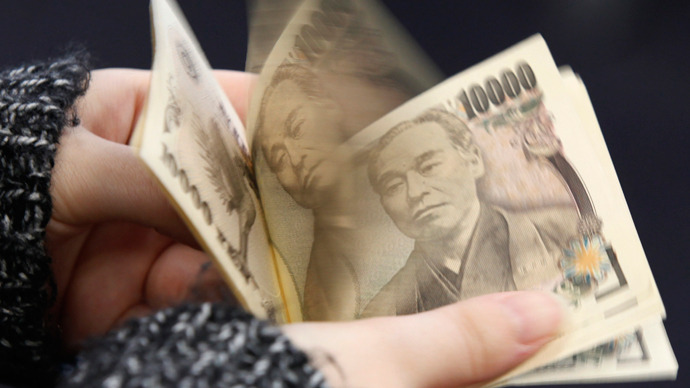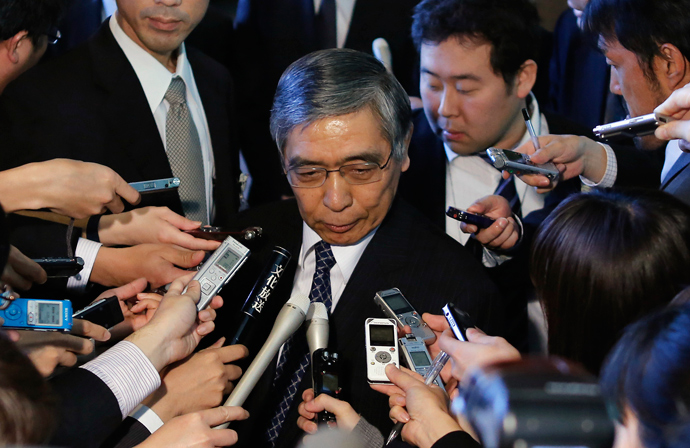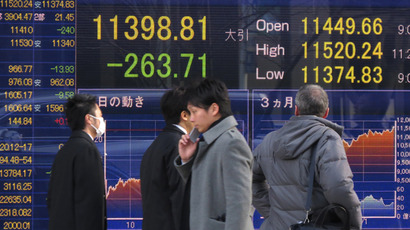Japan reports longest trade deficit in 30 years

Japan's trade deficit is in the red for the eighth straight month, continuing the lengthiest stint since 1980. But the Ministry of Finance remains optimistic about the $8.1 billion figure, saying it might signal the export industry is on the rebound.
Japan reports longest trade deficit in 30 years.
Japan's trade deficit is in the red for the eighth straight month, continuing the lengthiest stint since 1980. But the Ministry of Finance remains optimistic about the $8.1 billion figure, saying it might signal the export industry is on the rebound
According to the Ministry of Finance, exports dipped 2.9% in February from a year earlier, while imports rose 11.9%. The deficit was slightly lower than economists expected, but still highlight’s Japan’s struggle to increase its export economy.
"Exports haven't recovered yet, but they have at least hit bottom," said an official of a Japanese trading house, who expects exports to Europe and the US to bounce back in April.
Since Shinzo Abe came to office in December, the yen has fallen 10% against the dollar, in hopes of fighting inflation and boosting exports.
But the magic of ‘Abenomics’ hasn’t delivered results overnight. The weak yen has helped boost Japanese exports appeal as a cheaper alternative to other overseas products, but exports are still declining in Chinese and European markets. They are just declining less and less each month.
“Typically, a weak yen is swiftly reflected in higher import prices and a rise in the value of imports, but export growth usually comes with a lag, meaning the trade deficit could persist,” Goldman economists wrote to Bloomberg.

The new governor of Japan’s Central Bank, Haruchino Kuroda, debuted his plan to invigorate Japan’s economy, starting with domestic deflation, promising to "do everything we can to get the economy out of deflation."
Kuroda, who used to head the Asian Development Bank, took up his new office on Wednesday.
If Japan wants to further decrease the trade deficit, it has to look to China. China-bound exports dropped 15.8% partly due to the Lunar New Year Holiday, and partly due to a general lag in Chinese demand. Exports to the US rose 5.7%, and business in the EU fell 9.6%, according to Bloomberg.
Goldman forecasts Japan will continue its forward trajectory, and even raised its growth expectation from 2.1% to 2.3% for 2013.














